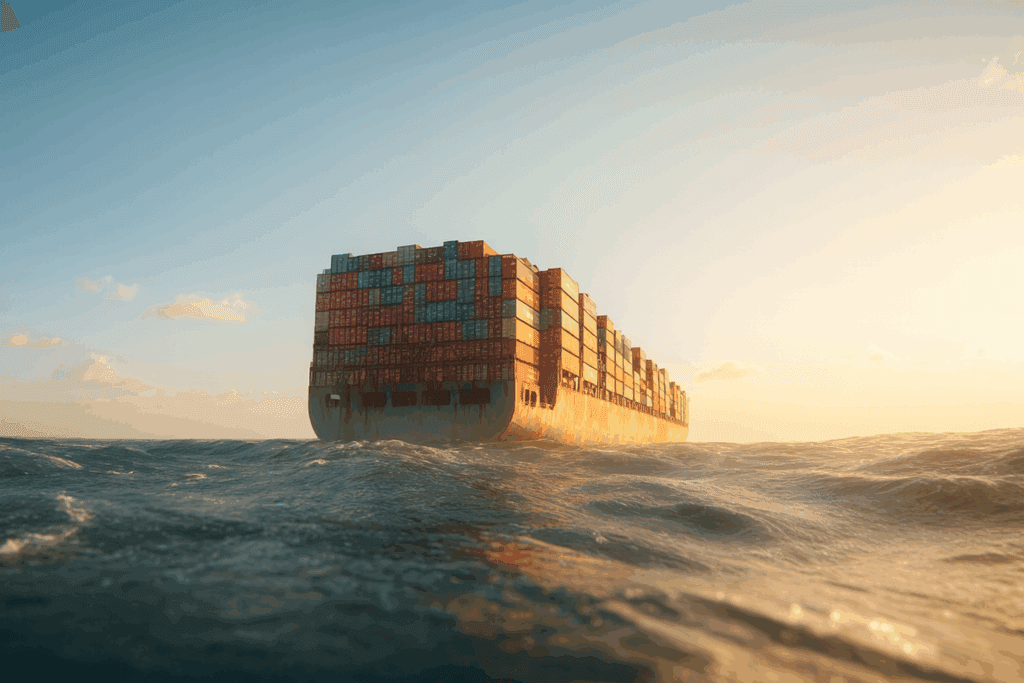And how crises can reveal this in an instant

25 September 2025
Houthi attacks don’t wait until you’ve lined up a second supplier. The Suez Canal won’t unblock itself because your production is on hold. And raw material shortages in Asia won’t wait until your contracts are renegotiated. It’s crises like these that remind us that outsourcing is not only about cost-cutting. Its real value lies in spreading risk, sharing responsibility with trusted partners, enjoying professional experience and creating space to focus on your true mission. Cost savings may follow, but resilience, agility and focus are what truly matter.
The world is unpredictable
If the last few years have taught us anything, it’s that disruption is here to stay. From sudden geopolitical conflicts and trade barriers to fast‑changing regulations and the pressure to decarbonize, today’s supply chains face constant volatility. Customers, investors and employees alike now expect resilience and responsibility to be built in.
“Modern supply chains are simply too complex, too global and too fast-moving for any one company to manage entirely on its own without sacrificing focus on the things that truly make it competitive.”
Now imagine facing all of this with only your own internal resources. Every new regulation means more compliance checks. Every disruption forces your team to drop what they’re doing to find emergency alternatives. Every market shift demands new data and new suppliers. If your people are constantly firefighting, they’re not building for the future.
You might still get the job done, but at what cost? Overloaded teams and missed opportunities? Risk blind spots, slower reaction times and less agility, and even bigger challenges when it comes to relocating production or integrating acquisitions? Modern supply chains are simply too complex, too global and too fast-moving for any one company to manage entirely on its own without sacrificing focus on the things that truly make it competitive.
The value outsourcing brings today and tomorrow
There’s the immediate value. By outsourcing non-core supply chain tasks such as tail spend management, inventory management or compliance administration to a specialist, you streamline processes and remove much of the administrative burden. This allows your teams to focus on product development, customer experience and market expansion instead of managing thousands of small orders. At the same time, you reduce risk through access to a broader supplier base, tested contingency plans and deep experience in solving complex delivery challenges. You also gain capabilities that would be costly to develop internally, from advanced digital inventory systems to specialized sustainability expertise.
“Outsourcing done right is about trust, alignment and the long game. It’s about turning the tail of your supply chain from a distraction into a well-oiled engine that supports your strategy.”
Beyond these direct benefits lies longer-term value too: outsourcing provides the flexibility to scale, improves cash flow and supplier relationships, and frees resources so your teams can focus on strategy rather than firefighting. Outsourcing done right is about trust, alignment and the long game. It’s about turning the tail of your supply chain from a distraction into a well-oiled engine that supports your strategy.
What this looks like in practice
I’ve seen manufacturers with multiple production sites make global outsourcing agreements for all non-core supply. This means that when they restructure production – moving a line from one country to another, or integrating a newly acquired site – their outsourcing partner can immediately shift the supporting supply chain alongside it. The result: operations are quickly up and running again with minimal disruption. I’ve also seen how outsourcing tail supply allows companies to absorb acquisitions faster, centralize supply chain management, maintain business continuity during transitions and work in a multiple ERP platform environment.
And the value becomes most visible in times of crisis. When disruption hits, companies with an experienced outsourcing partner don’t have to scramble, because a true partner thinks along, gets creative, and helps solve problems when supply chains become more complex and global. At MAG45, we even have people working directly on-site with customers to make sure disruptions are managed immediately. That level of problem-solving and commitment is something a traditional supplier is not equipped to provide.
Looking ahead
Outsourcing will only become more important in the years ahead. Supply chains are getting longer and more complex, while at the same time geopolitical tension is driving a push for more local and regional production. Compliance demands are increasing, with stricter ESG and sustainability requirements – moving from circularity to regeneration. And technology is reshaping the way outsourcing works, with AI and digital platforms enabling predictive maintenance, smarter planning and more data-driven decisions.
“I believe that in today’s volatile world, the companies that thrive are those that focus on what they do best and build strong partnerships for everything else.”
At MAG45, our integrated tail supply model brings together sourcing, inventory management and process optimization for non-core parts into one seamless service. That integration means fewer risks, more transparency and better performance across the board. It’s not about handing over control – it’s about gaining a partner who’s as committed to your success as you are. When we take over the tail supply, we’re not just managing it – we’re optimizing it, future-proofing it and making sure it supports your business ambitions.
I believe that in today’s volatile world, the companies that thrive are those that focus on what they do best and build strong partnerships for everything else. If you see outsourcing as more than cost-cutting, you might just discover it’s the smartest investment you can make in your supply chain.







